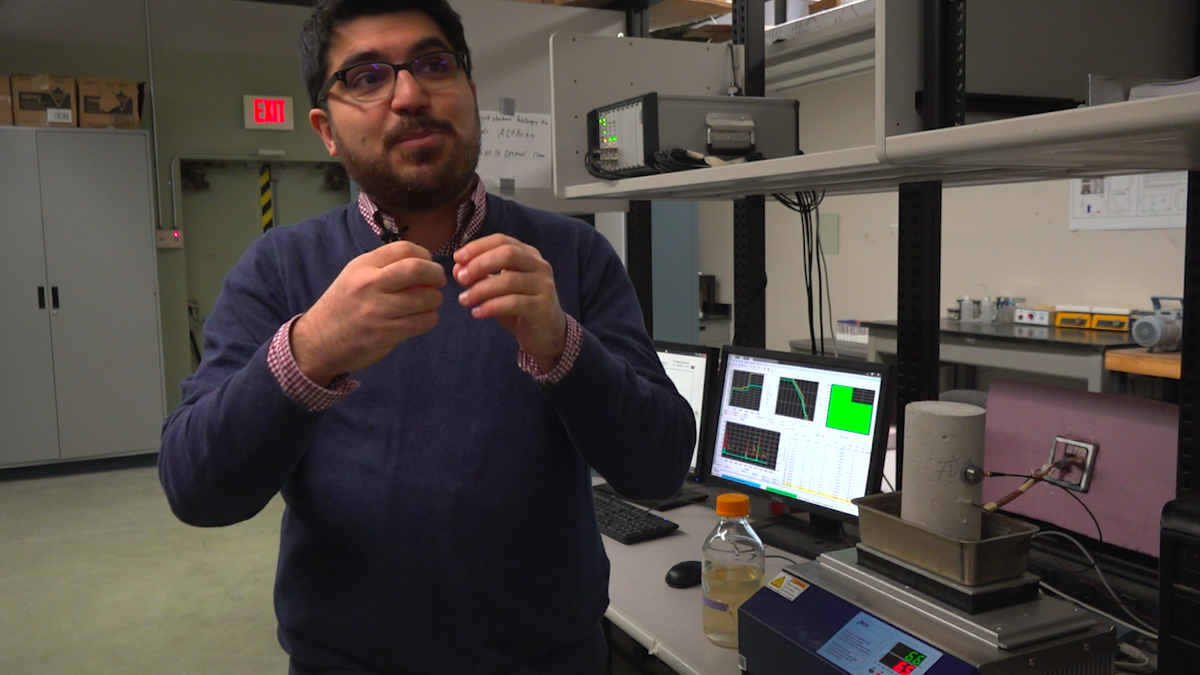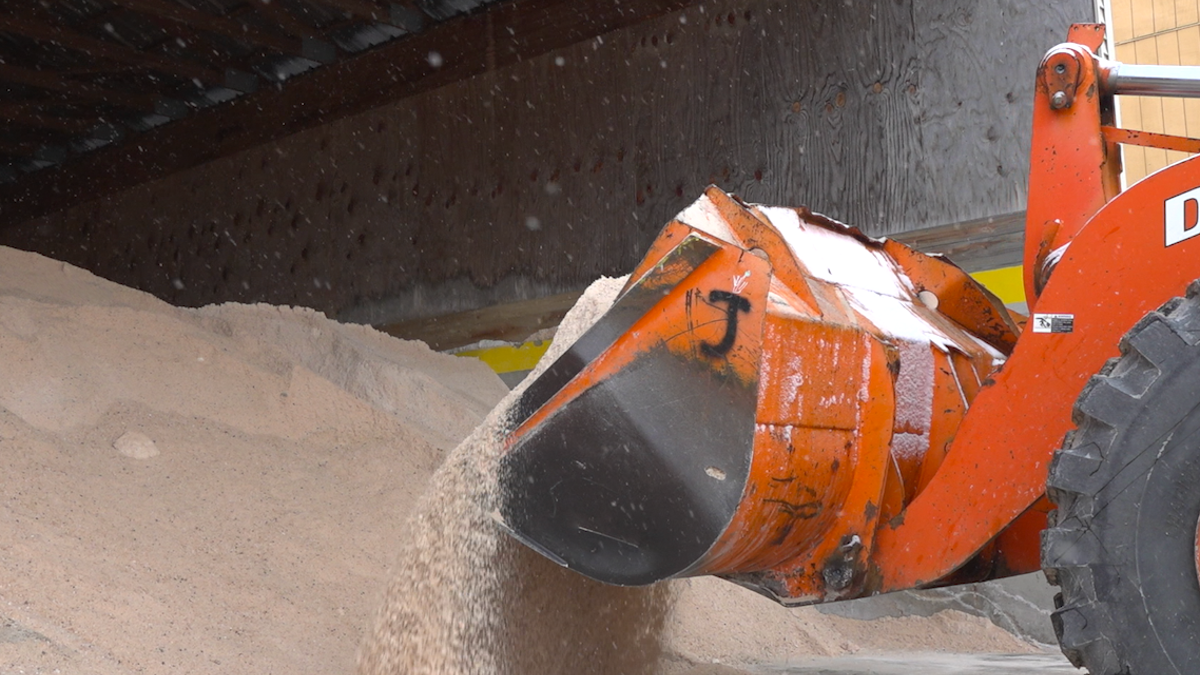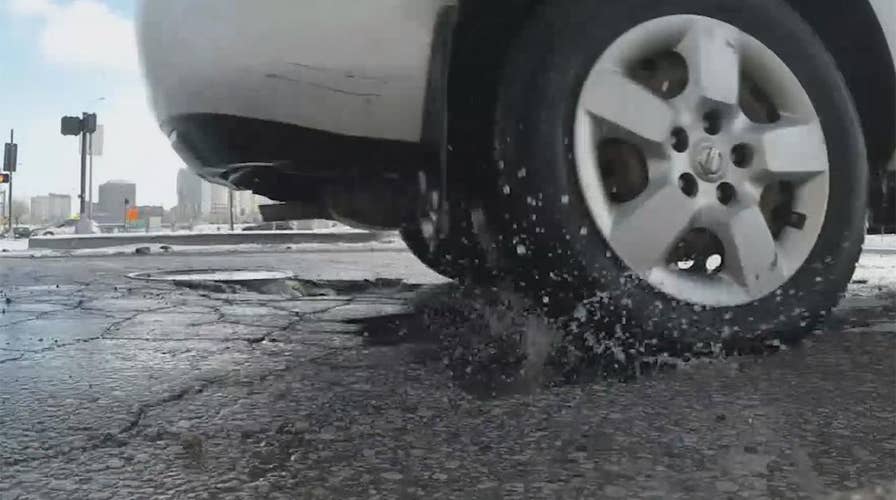Researchers develop new technology as a permanent fix for potholes
Pothole researchers may have found bacteria to prevent cracking roads and save crumbling infrastructure.
PHILADELPHIA -- A shattering drop, slight jolt, and then an inevitable headache: Parking lot attendee Juan Macklin recounts his daily work commute avoiding potholes.
“It’s rough, there are so many,” he said. “When it begins to snow, you can’t even see them.”
For many drivers across the nation, February marks the beginning of a long, treacherous pothole-filled journey of winter road mayhem.
But what if a new technology could eliminate potholes all together? Researchers at Drexel University are trying to find a cure for cracking roads by using a simple ingredient: bacteria.
A new study led by Drexel University engineer Yaghoob Farnam found that the surface of concrete was better able to withstand damage from road salt, called calcium chloride, after being treated with a certain type of bacteria.

The Drexel project, led by assistant professor Yaghoob Farnam, offers a reminder that damage from road salt is a man-made problem of recent vintage. (TALIA KIRKLAND/ Fox News)
“The bacteria are capable of changing the microenvironment around them,” said Farnam.
Farnam and his team of engineers found that by mixing the bacteria with CO2 and calcium into the pavement, the formula created an environment which was able to self-produce limestone, thus strengthening the pavement and making the surface pothole-proof.
But for drivers like Macklin, who have endured weeks of brutal winter cold, and multiple snowstorms, there is a bit of skepticism.
“I would have to see it to believe it,” Macklin said.
Chris M. Sales, an engineer at Drexel University, said the process of treating the roads is rather simple and has been used in the formation of soil and restoration of ancient sculptures for many years.
MICHIGAN PILEUP AMID POLAR VORTEX CAUGHT ON TERRIFYING DASHCAM VIDEO
“Once we identified the bacteria and nutrients, we noticed that the treated pavement was able to produce limestone, thus strengthening it and preventing the formation of a substance called calcium oxychloride,” Sales said, “a byproduct of road salt that highway engineers have started to learn about only in the last five years.”
Farnam added that damage from road salt is a relatively new, man-made problem.

Trucks will spread 900,000 tons of salt on Pennsylvania’s state roadways this winter, lowering the melting point of snow and ice to where some of it turns into harmless liquid. (TALIA KIRKLAND/ Fox News)
“Concrete, which once had a life span 30 to 40 years, now endures extreme weather and powerful salt treatment mixtures,” Farnam said.
There are also about 222 million licensed drivers on the roads in the U.S., according to the 2016 Census, and that has also played a role in the deterioration of roadways.
“There are so many different factors that must now be taken into consideration,” said Farnam.
According to an article published by the Philadelphia Inquirer, Pennsylvania will spread 900,000 tons of salt on state roadways this winter. In New Jersey, an additional 300,000 tons will be spread, the Inquirer said. Salt is a safety precaution for the motorist, but often a harsh decaying solution for roadways.
POLAR VORTEX BRINGS UNIQUE 'SUN DOG' WEATHER PHENOMENON TO MIDWEST
“Salts main function is to turn snow into liquid. The liquid has the opportunity to drain down into the cracks. It freezes, it expands and then that creates fractures,” said John Krafczyk, assistant district director of the Pennsylvania Department of Transportation.
Krafczyk said salt fosters corrosion of the steel used in bridges, roadways, and vehicles, and it harms freshwater ecosystems and wildlife.
“There is such thing as too much salt,” said Krafczyk, “Too much salt is bad for the roads, pipes, and can actually have a reverse freezing effect.
The cost of salting roads can also be expensive, added Krafczyk.
“In our five districts alone, we have spent on average of $7.5 million each year on winter road clean up,” he said.
More testing will be needed before researchers can put a price tag on using the process designed by Drexel.
Sales and Farnam said the process could help reduce construction cost and, in the long run, save money, time and for many a lot of headaches.
“I’d be happy and I think a lot of other people would, too,” Macklin said, “if they just fix the streets.”
